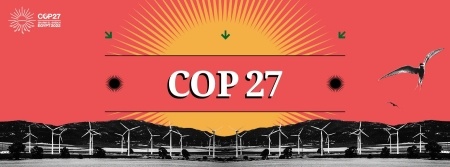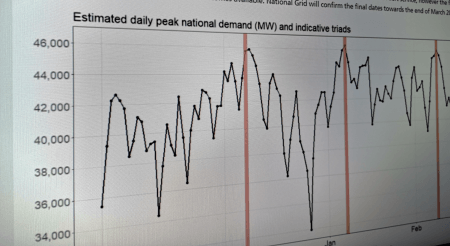
Getting ready for Triad season
1 November 2021 marks the start of Triad season: reduce your consumption during a Triad and you'll make savings; increase your consumption during a Triad and it could impact your budget.
Make the most of potential savings whilst the opportunity is there. There are only likely to be 2 more years (this winter and winter 2022-23) where you can make a significant difference to your Transmission Network Use of System (TNUoS) charges by modifying your behaviour during a Triad. Due to the Targeted Charging Review, after February 2023 the opportunity to benefit from Triad avoidance will be greatly reduced as the percentage of influenceable costs will be much lower. You can find out more about that in our Targeted Charging Review blog .
But for now - what are Triads, what impact do they have on your bills, and how can EDF support you to make savings?
What are Triads?
To manage the huge demand on the network over the most energy intensive period of the year (November to February), the National Grid imposes a charge: Transmission Network Use of System (TNUoS). This is used to finance the maintenance of the UK’s electricity grid to ensure future supply.
This charge is based on your business’ energy consumption during a “Triad” period.
Triads are the top three half-hourly peaks of national energy demand across the grid, separated by ten clear calendar days between 1 November and 1 March. National Grid confirms these peaks after the season, at the end of March.
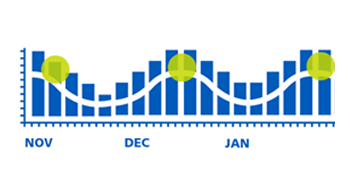
Typically, Triads occur when high business demand meets the domestic mid/late afternoon tea-time period, causing an overall spike in energy use.
How Triads impact your energy bill
Impacting customers with half-hourly meters, the charge is proportional to a business’ energy use over the Triad periods (the three half hours of highest demand) and is linked to their location. This is where you can make or break your budget: if a business doesn’t consume electricity in the three Triad periods, they don’t pay HH (half-hourly) TNUoS charges for the entire financial year.
As standard, we include a charge for 85% of your maximum demand figure for TNUoS on our customer bills – this helps to spread the cost over the year. After the final Triads are announced, we issue the March invoices to show the Triad periods and make any reconciliations.
Where can you see your transmission charge?
Your Transmission costs appears under the Transmission and agent charges on your invoice.
Here in the green box is an example of a monthly TNUoS contribution. This is calculated by taking 85% of that month’s maximum demand and multiplying it by the relevant zonal charge.
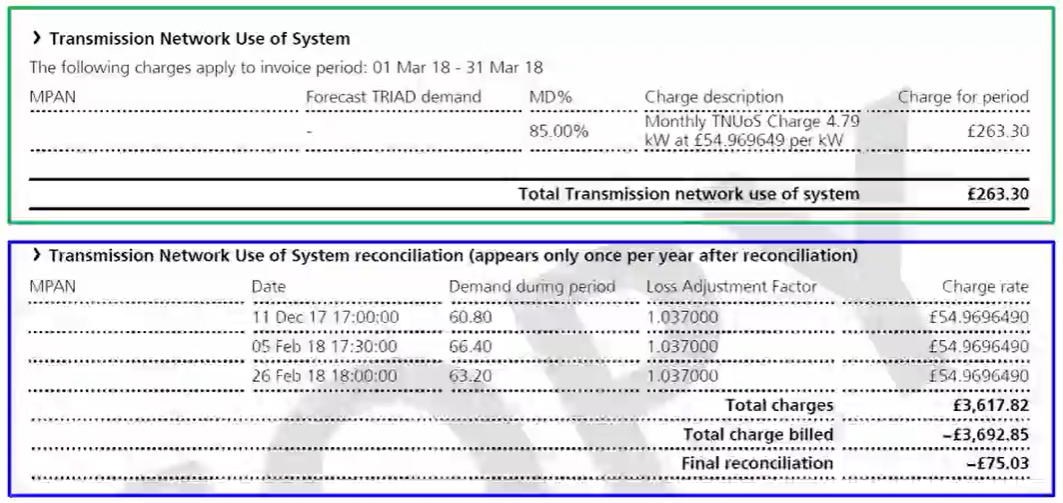
Here in the blue box, we show the TNUoS annual reconciliation (which you’ll see on your March bills). It shows the confirmed Triad dates and times, your consumption in that period, along with the line loss adjustment factor and your charge rate.
This is where we calculate the total charges for your TNUoS, what you have paid us over the year, and what the final reconciliation is.
The Triad challenge and how to make savings
To mitigate against Triad costs, companies and suppliers work hard to predict when they’ll be so they can turn down (or off) their energy usage during those periods.
Due to the increasing use of Triad avoidance schemes as well as flexibility solutions, such as Demand Side Response and the growing use of renewables, they are getting harder to predict.
To support our customers, we have a team of energy experts with complex modelling and forecasting tools designed to determine when Triads will likely be.
Related articles
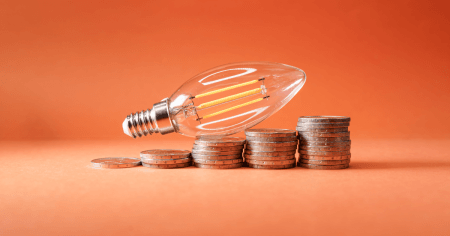
What the Energy Bills Discount Scheme means for businesses
